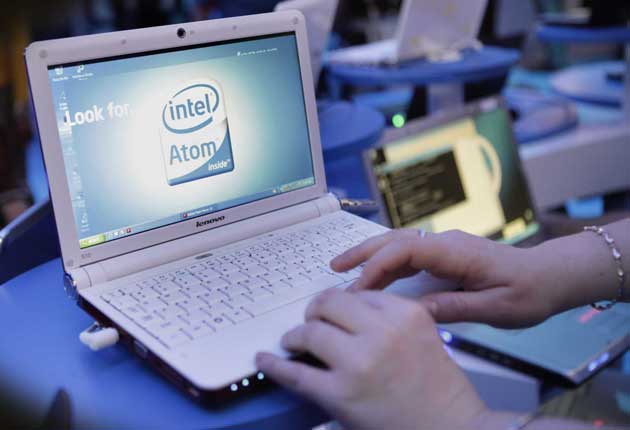Your support helps us to tell the story
From reproductive rights to climate change to Big Tech, The Independent is on the ground when the story is developing. Whether it's investigating the financials of Elon Musk's pro-Trump PAC or producing our latest documentary, 'The A Word', which shines a light on the American women fighting for reproductive rights, we know how important it is to parse out the facts from the messaging.
At such a critical moment in US history, we need reporters on the ground. Your donation allows us to keep sending journalists to speak to both sides of the story.
The Independent is trusted by Americans across the entire political spectrum. And unlike many other quality news outlets, we choose not to lock Americans out of our reporting and analysis with paywalls. We believe quality journalism should be available to everyone, paid for by those who can afford it.
Your support makes all the difference.Netbook web surfers beware. That low-cost netbook you're using could be a high-speed gateway into your life, bank accounts, passwords and other personal data.
Netbooks have made headlines since their 2007 launch, making PCs accessible to millions of non-traditional users. But their cheap cost could also carry a steep price tag due to lax security that makes them easier prey for viruses and hackers.
Since their introduction less than two years ago by Taiwan's Asustek, nearly all major PC makers, including Hewlett-Packard, Dell, Acer and Lenovo, have jumped on the netbook bandwagon.
But their no frills nature, combined with low computing power and relative lack of sophistication among their users could combine to create the perfect storm for hackers and virus creators looking for easy targets, analysts say.
"The Internet is full of dangers, regardless of what computer you are using," said Sam Yen, greater China marketing manager at anti-virus software maker Symantec.
"But keeping in mind that the netbook is primarily used to surf the Internet, those dangers are possibly multiplied many-fold, especially if there is no anti-virus software installed in the machine."
Price tags as low as £200 mean that netbooks often lack such standard gear as firewalls and other anti-virus software typically found in other computers, leaving them highly vulnerable to attacks.
"Frankly, netbook security is not there yet," said Pranab Sarmah, an analyst at the Daiwa Institute of Research.
"The positioning of the netbook means PC brands are going to do whatever it takes to make the price point attractive to consumers, which means keeping costs low."
Many netbook users are relative Internet newcomers, and may not be aware of precautions they can take to protect themselves. Low computing power also means savvy netbook users may shut down critical security programs to boost speed.
"It's a Catch-22 situation," said Gartner analyst Lillian Tay. "If you're running too many security programs at the same time, it slows the computer down. Don't run any, and you are at risk."
Netbooks were a glimmer of light in the tech sector last year, and IDC research firm says they could dramatically outperform the overall PC market in 2009. It forecasts netbook shipments will more than double to nearly 21 million units this year, compared with about 4 percent growth to 305 million units for all PCs.
Netbook pioneer Asustek believes its models already include built-in security features and other options that are sufficient for the typical user, said Samson Hu, who runs the company's netbook operations.
"We've got a tie-up with Symantec where users who want to can pay a little more for that additional security," he said.
"We've received lots of good feedback from users, but of course, everyone should be aware of Internet security issues when they are connected to any network."
Some experts say netbooks' inability to run effective security could crimp future growth, scaring away lucrative corporate users who regularly deal with sensitive data. Corporate buyers now account for more than half of all PC sales.
"For most companies, they'll still choose conventional laptops that allow them to run software that protects the information hidden inside it," said Eric Ashdown, senior director for security strategy and risk management at Accenture.
"If I'm somebody doing corporate IT work, I wouldn't be looking at netbooks as a viable option. I would need more security, which they can't offer right now."
But Ashdown also pointed out that netbooks could be protected by the types of customers that buy them, casual users who tend to store less valuable information on their computers.
"Most attacks go to where the data is, where the economic value is," said Accenture's Ashdown. "If I were a hacker, I'm not sure I would go for netbooks. What would I find there? Family photos?"

Join our commenting forum
Join thought-provoking conversations, follow other Independent readers and see their replies
Comments